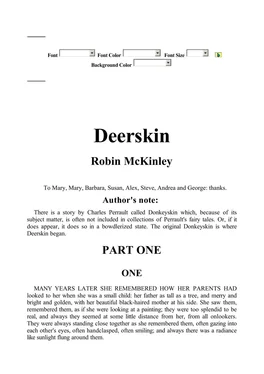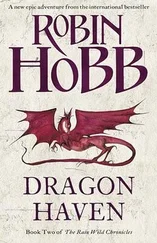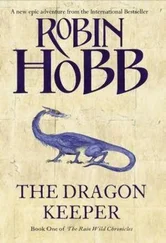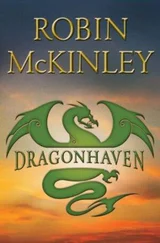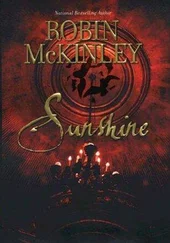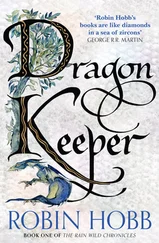Deerskin - Robin McKinley
Здесь есть возможность читать онлайн «Deerskin - Robin McKinley» весь текст электронной книги совершенно бесплатно (целиком полную версию без сокращений). В некоторых случаях можно слушать аудио, скачать через торрент в формате fb2 и присутствует краткое содержание. Жанр: Старинная литература, на русском языке. Описание произведения, (предисловие) а так же отзывы посетителей доступны на портале библиотеки ЛибКат.
- Название:Robin McKinley
- Автор:
- Жанр:
- Год:неизвестен
- ISBN:нет данных
- Рейтинг книги:4 / 5. Голосов: 1
-
Избранное:Добавить в избранное
- Отзывы:
-
Ваша оценка:
- 80
- 1
- 2
- 3
- 4
- 5
Robin McKinley: краткое содержание, описание и аннотация
Предлагаем к чтению аннотацию, описание, краткое содержание или предисловие (зависит от того, что написал сам автор книги «Robin McKinley»). Если вы не нашли необходимую информацию о книге — напишите в комментариях, мы постараемся отыскать её.
Robin McKinley — читать онлайн бесплатно полную книгу (весь текст) целиком
Ниже представлен текст книги, разбитый по страницам. Система сохранения места последней прочитанной страницы, позволяет с удобством читать онлайн бесплатно книгу «Robin McKinley», без необходимости каждый раз заново искать на чём Вы остановились. Поставьте закладку, и сможете в любой момент перейти на страницу, на которой закончили чтение.
Интервал:
Закладка:
"The one my father hired kept making my eyes bigger and my chin smaller-I'm sure from praiseworthy motives, but that kind of thing backfires, as soon as the poor girl-or her parents' emissary-gets here and takes a good look at me.
"No one has come up with a good way of disposing of these things once their purpose is accomplished-or in most cases failed. It seems discourteous just to chuck them in the fire. So they collect up here." He lifted the corners of one or two and let them fall again with small brittle thumps. "Occasionally one, of the painters turns out to be someone famous, and occasionally we get some collector wanting to look through what's in here, in hopes of finding a treasure. I don't think that's going to happen with Trivelda."
Lissar was smiling as she looked up, turning, now facing the wall, noticing the deep stacks of paintings leaning against its foot, the sunlight bright on the portraits hanging above. Second from the right, some little distance from the door, now on her left, that they had come in by, was a portrait that now caught her attention.
A young woman stood, her body facing a little away from the painter, her face turned back toward the unknown hand holding the brush, almost full-face. Her long pale gold skirts, sewn all over with knots of satin and velvet rosebuds, fell into folds as perfect as marble carved to clothe the statue of a goddess. Her face was composed but a little distant, as if she were thinking of something else, or as if she kept herself carefully at some distance behind the face she showed the world. Her mahogany-black hair was pulled forward to fall over her right shoulder. She wore a small diadem with a point that arched low over her brow; a clear stone rested at the spot mystics called the third eye. Her own hazel-green eyes gleamed in the light the painter chose to cast across the canvas. Her left hand, elbow bent, rested on the head of a tall, silver-fawn dog, who looked warily out of the picture, wary in that it believed the girl needed guarding, and it would guard her if it could. Its gaze was much sharper and more present than the girl's.
It was Ash she recognized, not herself. This painter was a better craftsperson than whoever had painted poor Trivelda; Lissar could not decide her mind, during those first moments, floundering for intellectual details to keep the shock and terror at bay, if she would have recognized Ash anywhere, however bad the likeness, because she was Ash; or if it was the painter's cleverness in catching that wary look, a look Lissar had seen often in the last few months, as Ash stared at six eager, clumsy, curious puppies. It was only because she could not refuse to acknowledge Ash that she had to look into her own flat, painted eyes and aloof expression and say Yes, that was I.
Standing, for hours, it seemed, though she was allowed frequent rests; the young painter, very much on his mettle, anxious to please, too anxious to speak to the princess; the princess too unaccustomed to speaking to any stranger to initiate; court women and the occasional minister came and went, that the two of them were never alone together. It was the women, or the ministers, who decided when Lissar should step down and rest. She remembered those sittings-or standings; curious how her memory brought up something, carefully enclosed, that led nowhere, to stave off the worst of the recognition of her own past; she could remember nothing around those occasions of standing being painted. She remembered nothing of the decision to have it done; she had no memory of how many copies might have been made, who they might have been sent to; when all of this had been accomplished.... She remembered, looking into her poised, uninhabited face, the faint surprise she felt at the portrait's being commissioned at all. It seemed so unlike . . . unlike ... she couldn't remember. But she was so unused to strangers, and these portraits would be sent out into the world, to strangers; she was unused to strangers because ... it was not that she was shy, although she was, it was because ... she remembered the ministers coming in, to see how the work was progressing, the court ministers, her father's ministers....
King's daughter King's daughter King's daughter
The memory ended. Her legs were trembling. So were her hands, as she moved a stack of paintings and sat down, sideways, her body turned toward the painting, but both feet still firmly on the ground. But she turned her face back toward the window and raised her chin, closing her eyes, as if she were only enjoying the sunlight. "Who is the girl in the golden dress, with the fleethound? The hound might be one of yours." Her voice sounded odd, feverish, but she hoped it was only the banging of her heart in her own ears.
"That's Lissla Lissar," said Ossin, easily, as if the name were no different from any other name: Ossin, Ob, Goldhouse, Lilac, Deerskin. "And that is one of my dogs. Lissar's mother died when she was fifteen; I was seventeen, and still deeply romantic-those were the years I was dreaming of Moonwoman and, coincidentally, raising my first litters of first-class pups. I sent her one of my pups, the best of her litter; I thought it a fine generous gesture, worthy of the man Moonwoman could come to love. I named the pup Ash." Ossin's gaze dropped to Ash, who had raised her own at the sound of her name. "She was exactly the same silver-fawn color as yours-except, of course, she had short hair."
He looked back up at Lissar. Lissar could see him thinking, rejecting what he thought even as he thought it. She tried to smile from her new, thin face at him; for the old Lissar had been rounder, and there were no lines in that Lissar's face. And she knew what he saw when he looked at her: a woman with prematurely white hair, from what unknown loss or sorrow; and with eyes black from secrets she herself could not look at.
But she closed her black eyes suddenly; for she remembered again what she had known all along, the life that went with the name she had retained. She remembered what she had, briefly, remembered on the mountaintop, before the Moonwoman had rescued her; that she was ... not an herbalist's apprentice, but a king's daughter, and the reiteration of king's daughter in her brain was battering open the doors that had closed, opening the dark secrets lying at the bottom of her eyes; it went through her like a physical pain, like the agonizing return of blood to a frozen limb. King's daughter, daughter of a king who ... who had. . .
No, not blood to a frozen limb; it was the thrust of the torch into the tarred bonfire, and the lick of the fire was cruel. The memories flared into brightness, seared her vision, stabbed through her eyes into the dark protected space inside her skull.... She wanted to scream, and could not, could not breathe, even so little movement as the rise and fall of her belly and breast-the involuntary blinking of her eyes as ordinary sight tried to bring her back into the room where the only warm things were her and Ossin and Ash, surrounded by cool paint on canvas, and dust-even this much motion, reminding her that she still lived, stretched her skin to bursting. It was as well she could not speak, even to moan; any cry would drive her over the lip of the pit, the pit she had forgotten, though her feet had never left its edge, and now that she had looked, and seen again, she could not look away. There were some things that took life and broke it, not merely into meaninglessness, but with active. malice flung the pieces farther, into hell.
She would die, now, die with the benevolent sun on her face, leaning against a table in the quiet store-room of a man who was her friend and to whom she had lied about everything, lied because she could not help herself, because she knew nothing else to tell. She remembered the last three days and nights of her life as a princess; remembered the draining away of that life, and the last violent act that she believed had killed her. Even now, her body's wounds healed by time and Ash and snow and solitude and Moonwoman, and six puppies, and the friendship of a prince and a stable-hand; even now the memory of that act of violence would shatter her; she could not contain the memory even as her body had not been able to contain the result of its betrayal.
Читать дальшеИнтервал:
Закладка:
Похожие книги на «Robin McKinley»
Представляем Вашему вниманию похожие книги на «Robin McKinley» списком для выбора. Мы отобрали схожую по названию и смыслу литературу в надежде предоставить читателям больше вариантов отыскать новые, интересные, ещё непрочитанные произведения.
Обсуждение, отзывы о книге «Robin McKinley» и просто собственные мнения читателей. Оставьте ваши комментарии, напишите, что Вы думаете о произведении, его смысле или главных героях. Укажите что конкретно понравилось, а что нет, и почему Вы так считаете.
